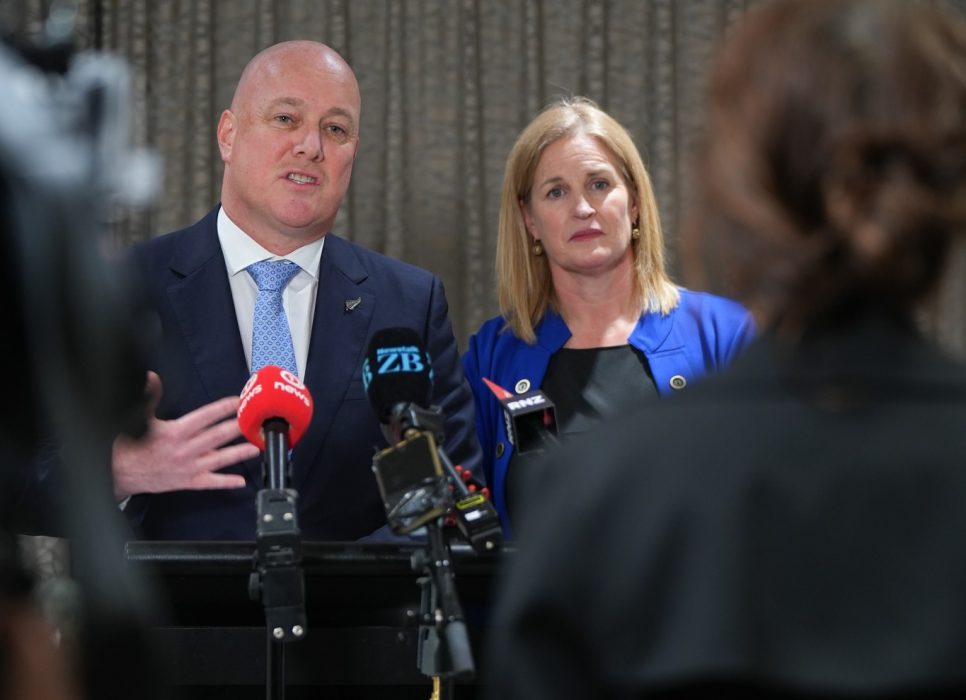
Kiwis on benefits who don’t meet their obligations to try to find work will face tougher sanctions.
Social Development and Employment Minister Louise Upston says a “comprehensive package of reforms” to the benefit system will shift more people off Jobseeker Support into employment and introduce tougher consequences for those who repeatedly do not meet their benefit obligations.
The new “Traffic Light System” came into force on August 12 to inform people what’s required of them to continue receiving a benefit under the current system and warn them when they are not meeting those expectations.
“There are responsibilities that come with receiving a benefit, and there will be no more excuses for job seekers not knowing what those responsibilities are,” Upston says.
She says Cabinet has also agreed to progress new initiatives that will increase obligations and consequences for job seekers from early next year, including:
- Extending the period over which an obligation failure counts against a beneficiary from 12 months to two years
- Requiring Jobseeker Support recipients to reapply every six months
- Making it mandatory for all beneficiaries with work obligations to have a jobseeker profile before their benefit is granted
- A new money management sanction that will see half a person’s benefit go onto a payment card that can only be used for a limited range of essential products and services (fulfilling a National-ACT coalition commitment)
- A new community work experience sanction that will require beneficiaries to build their skills and confidence to help them get a job
“These changes come with increased support in the form of a new phone-based case management service for 4000 job seekers aged 18 to 24, and 2100 extra places for young people to get community job coaching,” Upston says.
“Our welfare system will always be a safety net that catches people if they fall.
“But in the past few years it has become a drag net that has captured too many people who can work and allowed them to languish on Jobseeker Support for too long.
“The number of people on Jobseeker Support increased by 70,000 under the previous Government as the use of sanctions significantly decreased, and almost two-thirds of the people receiving this benefit have been for over a year.”
Upston says the “Welfare that Works approach” will increase obligations for job seekers and ensure they’re being actively supported rather than getting stuck in the system.
“A harder line will be taken against those who repeatedly fail their obligations by counting past failures for twice as long, making it more likely their benefits will be cancelled if they continue this behaviour for longer than 12 months.
“Our new money management and community work experience sanctions will provide an alternative to financial penalties for first-time obligation failures in situations where this will help a job seeker onto a more productive pathway.
“Reapplying for Jobseeker Support every six months will allow MSD to check on job seekers more often and provide a greater level of support to overcome their barriers to work, while also ensuring they are still eligible for benefit.”
In response to the changes, Green Party Social Development and Employment spokesperson Ricardo Menéndez March says the expansion of compulsory money management and introduction of mandatory community service for beneficiaries reheats failed policies that have not supported people into work both here and in Australia.
“People in poverty deserve so much better than the pain and misery this Government is inflicting upon them.
“People deserve to live in dignity, they deserve to be supported in times of need. Everything we need to turn this ambition into a reality exists, all that is missing is the political will.
“The Government has shown little ambition or interest in really addressing poverty and has instead made life harder for many of our communities.
“Cuts to benefit increases, job losses and an increase in sanctions have left people without the resources to put food on the table and pay their bills.
“Compulsory money management only serves to take further agency away from people who simply do not have enough to properly make ends meet and regularly have to get into debt to cover the essentials.”








